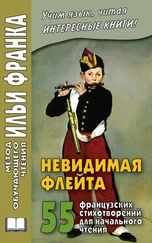‘No, they won’t knock it down. They are selling it to another company, who will change it into something else. A club with bedrooms.’
‘For people to stay?’
‘Yes, for people to stay.’
‘So they will need it to be cleaned. So I could work here?’
‘Well, it will be closed for a long time, while they refit the building. And I think it would be difficult to work here. Difficult for you.’
‘But you will stay here?’
‘No, Eloni. I won’t stay here. They will bring a new manager.’
‘But you will be here? In this place? This –’
‘Area?’
‘This area, yes,’ she says, feeling her heartbeat growing stronger and uneven.
‘No. There’s not much demand for hotel managers in this neighbourhood,’ he says, picking a hair from his cuff. ‘I think it will be London. The bright lights.’
At the thought that she may never be in Mr Caldecott’s office again she looks where he is looking, at the path that leads to the tennis court. Steam is coming off the stones in curling wisps that disappear as they rise. The sunlight on the hanging raindrops looks like thousands of tiny light bulbs in the bushes, like Christmas lights but in summer. When a blackbird bursts out from the branches of the evergreen tree it sends up a shower of droplets that glitter like stars against the dark green leaves. It is so beautiful, the garden of the hotel, and so quiet in this room, that she feels as if she has drunk something that has made her mind stop working, a delicious drink of forgetfulness.
‘Well,’ says Mr Caldecott, touching the knot of his tie as he stands up.
‘Yes,’ she replies, pushing herself out of the chair. ‘I must go to clean the rooms,’ she says, and as she leaves the office she is thinking of the lights of London, the huge billboards of flashing lights above the traffic. She sees the crowds of people pushing each other, in air that tasted of aluminium, and then she sees another scene, a scene she was trying to keep away, and she has to go into an empty bedroom so that nobody will catch her crying, and she sits on the bed, pressing her face into a pillow until she can longer see the tattooed man.
In his room, Edward listens to another e-mail from Claudia:
Here is the story for you. It is a bit silly but also I think a little sad, and beautiful too. A postcard is what it is about. An old postcard and an old love. Not even a love, I think.
Papa called me into his cave of books. He gives me a creased old postcard and tells me what the trouble is about. Last week mother decided to make the living room tidy. The books were spreading all over the apartment – a book-lava, flowing out of the studiolo into every room. She picks them up from under the television, behind the chairs, all over, and carries the pile back to their right home. As she puts the books down, this postcard falls out of one of them. It’s an interesting thing to find – an old-style card, with wavy edges and a picture of Piazza Navona on the front, all in brown. It is addressed to my father at his parents’ house and was sent by someone called Antonietta. She reads the message. The message is not interesting: ‘Rome is exciting…so many things to see…we have visited this and this and tomorrow we will see that and that.’ Boring, the usual thing. But Antonietta had drawn a little red heart in one corner and a little arrow through it. So mother looks at the date: it is from the time when she (mother) was my father’s girlfriend, but before they were going to get married. My mother knows these dates: I know cephalopods, my father knows politics (and a lot more) and my mother knows when my father kissed her, and when he asked her to marry him, and when I walked my first step. She has all these dates wired into her brain. My mother is a calendar.
When my father comes home the postcard is on his desk, in the middle of the desk, so he cannot miss it. The evidence. He picks it up, looks at it, puts it aside. A bit curious, but that is all. He puts it aside. But mother is behind him, watching. She thinks she sees what she was afraid of seeing – and what she wanted to see. Why was the card in the book, she wants to know. It has been in there for years and years, he says. He has not read the book for a long time. He’d forgotten it was there. It’s nothing important. So why had he kept it? He hadn’t kept it, he answers – he just hadn’t thrown it away. That is a different thing. Sometimes my father’s way of reasoning – his way of all the time being reasonable – makes my mother very angry and this is one of those times. She was already angry; now she is furious, because he is being like a Jesuit. Why had he kept the postcard? It is very meaningful for him, that is obvious. Why had he kept it? Was that girl in love with him? Was he in love with her? And my father, instead of telling her ‘No’, he stops to have a think. This was stupid, but what he did next was really stupid. He has his think and he says, ‘Perhaps a bit. Before I met you.’ Why did he say this? Is it because he wants to be an Englishman? Because this is what an Englishman would do? Not do what is best but answer like a child, honestly, saying the truth even if it makes things worse? He says, ‘Perhaps a bit.’ Unbelievable, no? This is the man who knows my mother better than anyone in the world. It is the worst he could do.
It is a very old thing, this card. More than thirty years old. But sometimes the years are like days. Sometimes you were a child yesterday and it is a terrible thing when you count how many years are gone. For my mother this card from Antonietta, this message with the little red heart and the arrow, this betrayal, it happened yesterday. She reads the message to him and it means more than the words are saying. The words are not important – the meaning is underneath them. She is jealous. It is ridiculous, but she is jealous. She accuses my father of deceiving her. She was watching him when he read the card, she tells him. He sighed when he read it, she says. He denies this. She insists that he sighed. I didn’t – you did – I didn’t – you did. So I sighed, he confesses. But not for Antonietta – for the time that has passed since then. Mother of God! What a thing to say! It has been a happy time, he tells her. A very happy time, he says, but now I’m old, he explains. It would be good to be younger, with you, he says. But it’s too late for explaining – she’s gone, out of the room, out of the apartment.
To understand this drama you must have a missing piece of the puzzle. Who is Antonietta? When she wrote the postcard she was Antonietta Venuti, the daughter of a farmer who lived not far from Recanati. A very wild and sexy girl who gave her parents worries because all the boys liked her and she liked all the boys. Antonietta was not liked by all the girls, of course, and was very much not liked by the girl who would become my mother, who was a bit of a goody-goody and never gave her parents any worries. So Antonietta Venuti was a girl who broke many hearts and had very many boyfriends before she married the electrician Roberto Pallucchini, whose son Paolo did not look very much like his father, some people said. There was gossiping about the boy, but Antonietta and Roberto did not give any attention to it. They were happy for some years, the three of them, then Roberto died in an accident when he was not even forty. A mistake by the boy who was working with him, and it killed him in the street, in the middle of the day, so lots of people saw him die. It was terrible. He was putting up lights for a festival, on a stage for dancing and singing that night. Lying on the stage under a string of flags, dead as iron. Paolo took up his father’s business and his mother locked herself in her apartment and never went outside.
For years she stayed in her rooms, seeing nobody except her son. After five or six years she came out again and now she was no longer pretty. She was much more than pretty: she was splendid. When she was younger she was always paler than the other girls, but now her skin was the colour of cream, like those ladies in earlier times who never let the sunlight touch them. And her hair – which was unusual also, because it was red as rust – it seemed even more bright now her skin was so white. It seemed to burn around her head, like a halo. She had become thin in her body and in her face, in a way that made her eyes huge and gave her a nobility she did not have before. In every way she was changed. Before she was mad about new clothes; now she wore plain dark dresses, very simple, very ordinary. Before she was a real talker; now she spoke when she had to speak to somebody, that was all. Now every day she went to mass, and after mass she went to the shops. She never talked about her husband or anything that she had ever done in her life. She is still in Recanati, living alone, in the apartment she shared with her husband and son. You see her every morning, on her way to the church. Sometimes you see her with Paolo or his children, but not often. All the women who hated her when they were young, when she took all the boys they liked, now they look at her with respect or pity, or as if she has something saintly about her. My mother looks at her in this way, but now the sight of the widow Pallucchini is making her jealous too – truly jealous, I think, though it’s about something that is dead and was never very alive, so my father says. And the jealousy is bad because the reason for it is this woman who has suffered and become sort-of-holy. So father will now reason with mother and life will be normal again soon, because really he did not do anything wrong and they have always loved each other, my father and my mother, in their way, which I know is a strange way sometimes. But love is always a strange way, no?
Читать дальше











